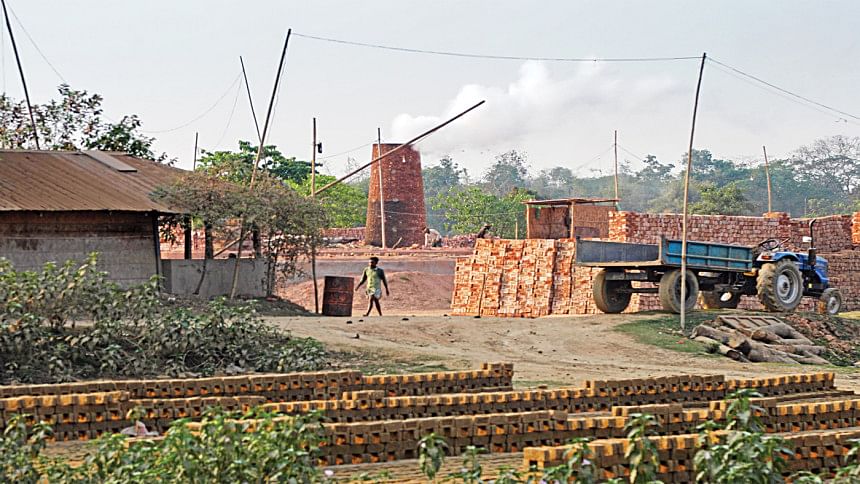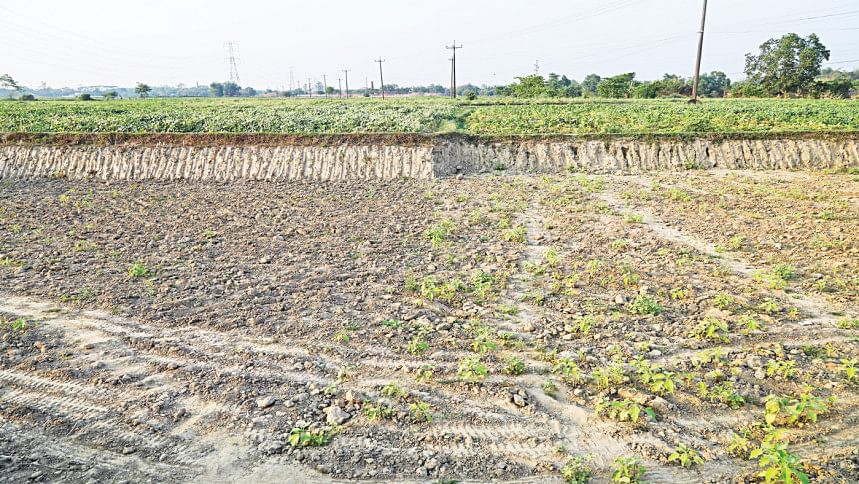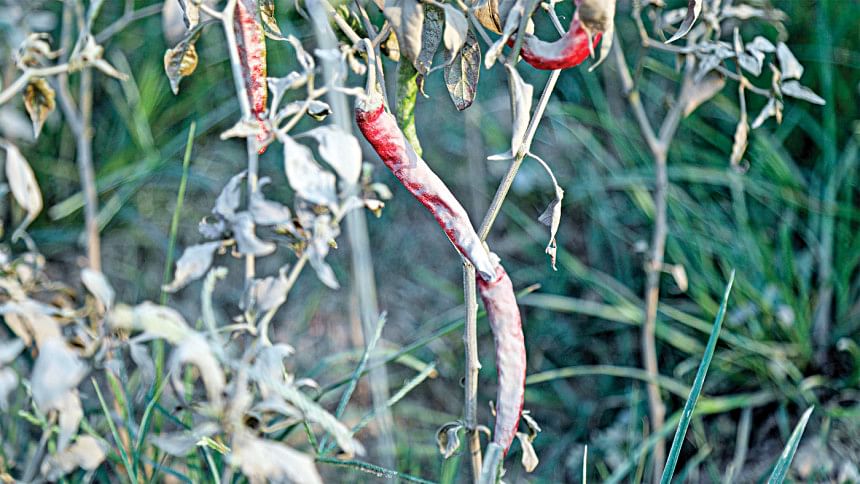Toxic smoke damages crops in Chattogram

Hundreds of farmers in Chattogram's Fatikchhari and Hathazari upazilas are facing losses due to toxic smoke from nearby brick kilns, which has been damaging their crops.
This has left many local farmers concerned about their livelihoods.
Md Harun, 55, a farmer from Paindong union in Fatikchhari upazila, said, "Crops grown near brick kilns do not grow as expected, and are often covered in dust from the smoke emitted by the chimneys. As a result, these crops must be washed before being sold."
Harun, who cultivated tomatoes, brinjals, cucumbers, and sweet pumpkins on 80 decimals of land, said his crops were severely affected by dust from nearby kilns, preventing him from even recovering his production costs.
During a recent visit to several areas in the upazila, this correspondent observed that croplands near brick kilns were covered in dust particles from toxic fumes released by the chimneys.

Abdus Salam, 48, a farmer from Fakira Chan area in Fatikchhari upazila, was seen cleaning tomatoes in his field near the MA brick kiln.
"Since the brick kiln started operating, my crop yields have dropped by more than half. If this continues, we may have no choice but to abandon farming and find alternative livelihoods," he said.
Didarul Alam, a farmer from Mirzapur union in Hathazari upazila, who grows mangoes and betel nuts, said, "The trees have been severely affected. Most of the kiln owners are financially and politically influential, so we are afraid to speak out against them, fearing possible retaliation."
According to data from the Department of Environment (DoE), over 90 brick kilns are operating across the two upazilas. Under the Brick Production and Kiln Installation (Regulation) Act, establishing brick kilns on or within a one-kilometre radius of agricultural land is prohibited.

However, many kilns in these areas have been set up in direct violation of the law, often with the knowledge of the local administration.
Most of the brick kilns use firewood as fuel, which not only breaches existing regulations but also contributes significantly to harmful emissions, exacerbating the damage to nearby croplands.
A brick kiln owner in Hathazari upazila, who wished to remain anonymous, said, "Smoke emission is inevitable during brick production. Unfortunately, we are helpless in addressing the issue."
Mojahidul Islam, deputy director of the DoE in Chattogram, confirmed that most of the kilns in both upazilas are illegal. "We have already demolished several kilns and are working to shut down the remaining ones," he said.

 For all latest news, follow The Daily Star's Google News channel.
For all latest news, follow The Daily Star's Google News channel. 



Comments